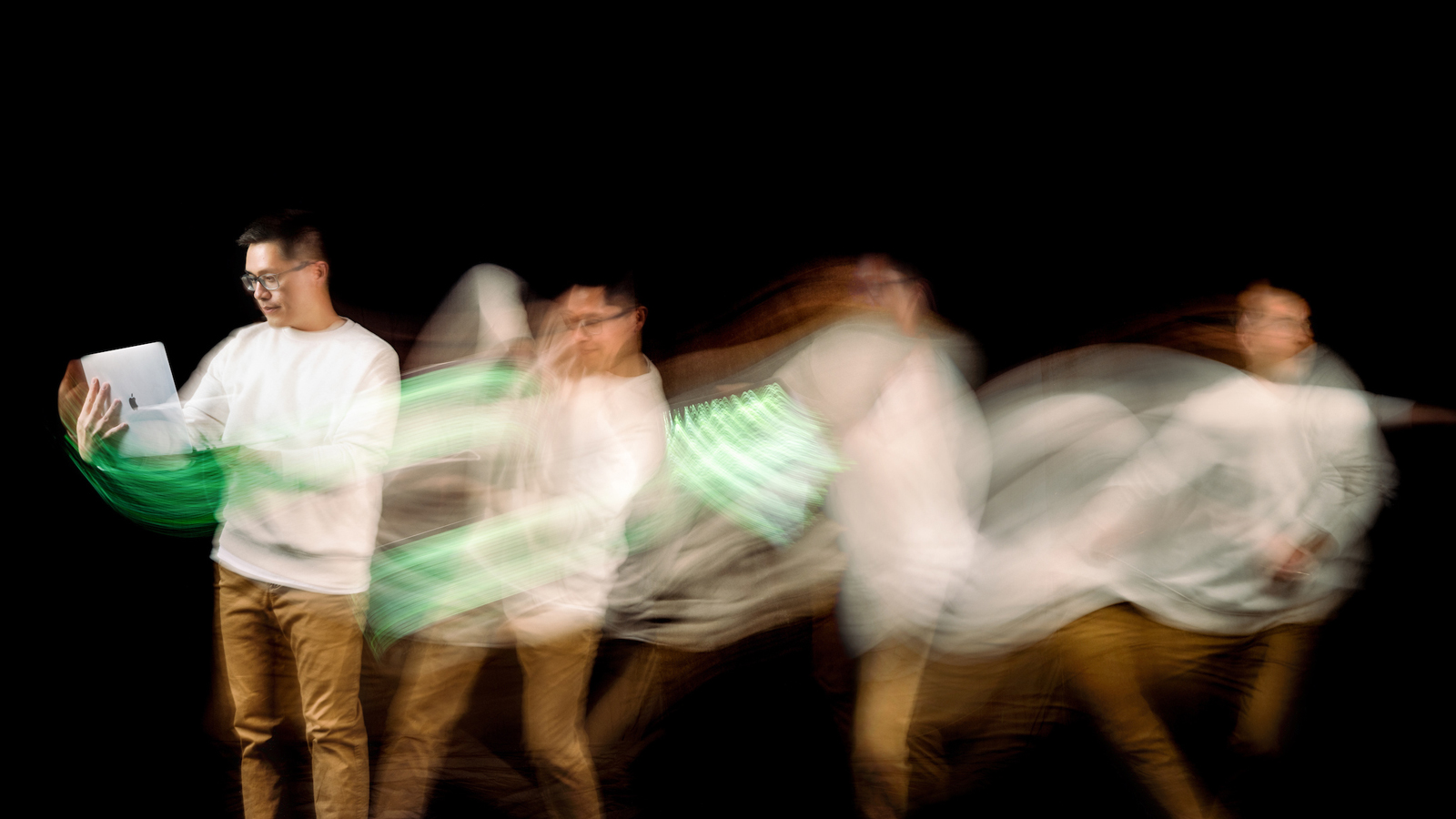

Jacob Campbell
I’ll always remember my first time in a Cal Poly classroom. My mom, a single mother working full-time and raising two young children, transferred to Cal Poly to earn her bachelor’s degree in social sciences. A childcare mix-up resulted in my younger brother and I attending an evening class with my mom. This was in the early days of cellphones, and she had a PalmPilot with a fancy keyboard attachment. I was so impressed by how fast she could type!
Looking back, I’m more impressed by my mother’s strength — her persistence and commitment to all that a Learn by Doing degree could make possible for her and her family.
Almost two decades later, I was offered a job at Cal Poly as a data analyst. Given my undergraduate degree in dance and professional background in arts education, I wondered if I was the right person for the role. I joked that working with spreadsheets requires the tools of a choreographer — spatially organizing information, attending to shapes and patterns, communicating ideas beyond words — and this position was the perfect opportunity to test that theory.
We’ve been socially conditioned to prioritize the so-called neutrality of data, sometimes at the expense of embodied knowledge. Numbers don’t lie. Numbers are objective. But numbers often represent people, and people are complicated! As a mixed-race person, I know all too well that people don’t fit into neat boxes and categories, despite pressures and priorities that might suggest otherwise.
Early in my Cal Poly career, colleagues shared graduation data broken down by race/ethnicity, and I noticed a glaring omission of multiracial students. When I questioned the choice to exclude this student group, I was told that the population was “too complicated” to analyze. This moment fueled my research agenda in Cal Poly’s Master of Science program in Higher Education Counseling and Student Affairs, where I aim to interrogate institutional data policies and practices that impact the (in)visibility of multiracial students.
A recent study I conducted found that just half of Cal Poly students who self-select the multiracial category during the admissions process are ultimately counted as such in official reporting due to federal standards of the Integrated Postsecondary Education Data System (IPEDS). This discrepancy between how students choose to be categorized and the categories assigned to them also impacts our understanding of graduation equity gaps.
As a mixed-race person, I know all too well that people don’t fit into neat boxes and categories, despite pressures and priorities that might suggest otherwise.
For example, in one of Cal Poly’s six colleges, self-reported White, female students were over two times more likely to graduate than self-reported multiracial, female students. However, once students were recategorized according to IPEDS standards, these same groups were shown to have equal odds of graduating. Rather than too complicated, I see this data as too important to ignore.
As a graduate student and staff member at Cal Poly, I have a unique platform to share my findings. From national conferences and statewide student research competitions to everyday meetings with partners across campus, I choreograph unique data-dances in hopes of expanding how we see and support multiracial college students.
While I may be the first in my family to pursue a master’s degree, I’m not the first to earn a degree from Cal Poly. As I look ahead to my goal of becoming a professor at the intersection of education and critical mixed race studies, I hope to one day join the Cal Poly faculty and cultivate learning environments that honor students’ multiple identities.
I aim to be the type of professor who allows students like my mom to bring their full, authentic selves — children included — into the classroom. A professor who makes data dance.
Jacob Campbell is a retention specialist in Cal Poly Advising, a master’s student in Cal Poly’s Higher Education Counseling and Student Affairs program. He earned a bachelor’s degree in World Arts and Cultures/ Dance with a minor in Visual and Performing Arts Education from UCLA. He recently received a Sally Casanova Scholarship, a pre-doctoral fellowship aimed at preparing future faculty members in the California State University system. He identifies as Chinese, Filipino and white.


